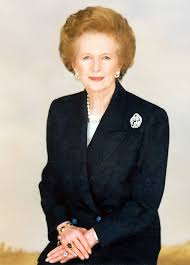Margaret Thatcher: The Iron Lady’s Legacy

Introduction
Margaret Thatcher, the United Kingdom’s first female Prime Minister, remains an influential figure in British politics more than three decades after her term ended. Known as the ‘Iron Lady,’ she was a polarising leader who implemented radical economic policies that transformed the nation. Understanding her legacy is crucial as debates about leadership, economic strategy, and social change continue to shape modern political discourse.
The Rise of Margaret Thatcher
Born on October 13, 1925, in Grantham, Lincolnshire, Margaret Thatcher studied chemistry at the University of Oxford before entering politics. She became a member of Parliament in 1959, and her political career skyrocketed when she was elected leader of the Conservative Party in 1975. In 1979, she led the party to victory, becoming Prime Minister.
Key Policies and Achievements
During her time in office from 1979 to 1990, Thatcher introduced sweeping reforms aimed at revitalising the British economy. Her policies included reducing government intervention in the economy, privatising state-owned companies, and curbing the power of trade unions. Thatcher’s approach, often referred to as ‘Thatcherism,’ prioritised free-market principles and individualism over collectivism.
Among her significant achievements were the successful privatisation of British Telecom and British Gas, which not only transformed these industries but also raised billions for the government. Her government also faced challenges, such as high unemployment rates and social unrest due to her stringent economic policies, which many argue exacerbated existing inequalities.
Controversies and Criticism
While Thatcher had many supporters who praised her for restoring the nation’s financial stability, her tenure was marked by significant opposition. Critics argue that her cuts to public spending and shift towards privatisation led to a decline in social services and increased poverty levels in some communities. The 1984 miners’ strike and the violent protests against her policies displayed the national discontent towards her government.
Legacy and Influence
Margaret Thatcher left office in 1990 but continued to influence politics globally. Her strong stance against communism during the Cold War earned her respect from allies, including U.S. President Ronald Reagan. Her legacy is complex; she is revered by some for her steadfast leadership and condemned by others for her divisive policies.
Conclusion
The significance of Margaret Thatcher in the annals of British and global politics cannot be understated. As the country faces new economic challenges and a shifting political landscape, her approaches to leadership continue to elicit discussion and debate. Understanding Thatcher’s multifaceted legacy offers valuable insights into the dynamics of political power and economic reform in contemporary Britain.









